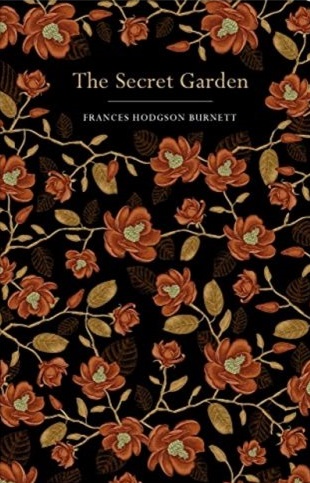I love stories that are set in slightly spooky old estates out in the moors, and The Secret Garden is a perfect example of that kind of book. It starts out in India, but I won’t spoil exactly what happens, as it was very dark, and very unexpected, but once it gets into it, a girl named Mary Lennox is adjusting to a new life in a solitary home in the Yorkshire moors.
As you might have guessed, this home contains a secret garden, but I don’t want to say much about it, as there are lots of little twists and turns. At its heart, it’s really about the blossoming childhood friendship between Mary, a boy named Dickon, and another boy called Colin. They all change and grow from their relationship, and having that at the heart of the story is very wholesome.
Another aspect that was very appealing to me was the fact that the story has a fantastic atmosphere – the old house out in the moors comes across so clearly, and the aura of mystery pervades the whole thing. If you’re somebody who loves nature, and stories that capture its beauty, then that’s one aspect of The Secret Garden that will be particularly appealing.
Not only does this book do a good job of showing how untampered wilderness can actually be quite daunting, but it also shows how it can be something that’s very comforting. Dickon in particular was quite a likeable character, because he perfectly embodies the idea of being at one with nature – perhaps in a slightly over the top way, but then again, it is a novel for children. I was particularly pleased with his ethos of respect for animals, which seems quite rare in other work of the time.
One aspect that I didn’t so much enjoy was one that seemed to have the angle of “The chronically ill have willed themselves into that position”. It’s a complicated one though, because I know that there are instances of a person believing they’re unwell to the extent that it can make them unwell, but I also feel like because this is such a common narrative in stories like this, it’s actually quite harmful, because those who are genuinely unwell have people acting like this is the case. It’s of a time, and medical knowledge was much more limited back then, so I can forgive it, but in the grand scheme of things I don’t think it’s a helpful narrative.
My only other gripe with it, is that it seemed to end a little suddenly. I guess I’m used to books of that era giving loads of detail about the characters’ lives beyond the main events of the novel, but with this one, I was genuinely surprised that the last chapter was the last chapter (I was reading an ebook). This was particularly true for the character Martha (a servant who Mary befriends) who plays fairly important role in the book, but whose last appearance is so incidental, you’d never think that you wouldn’t see her again.
Nonetheless, I don’t want to end this review on a negative note, because it’s a sweet little book and I’m glad that I read it. It’s a delightful children’s novel that tells a moving story about crawling out of a pit of despair and isolation, and finding new happiness through the power of friendship and the majesty of nature.
Rating: 7.9/10

